The Middle East and North Africa (MENA) region has great potential for Halal products. The MENA Halal consumer and beauty products market alone is forecast to reach a value of USD 5.9 trillion by 2025.
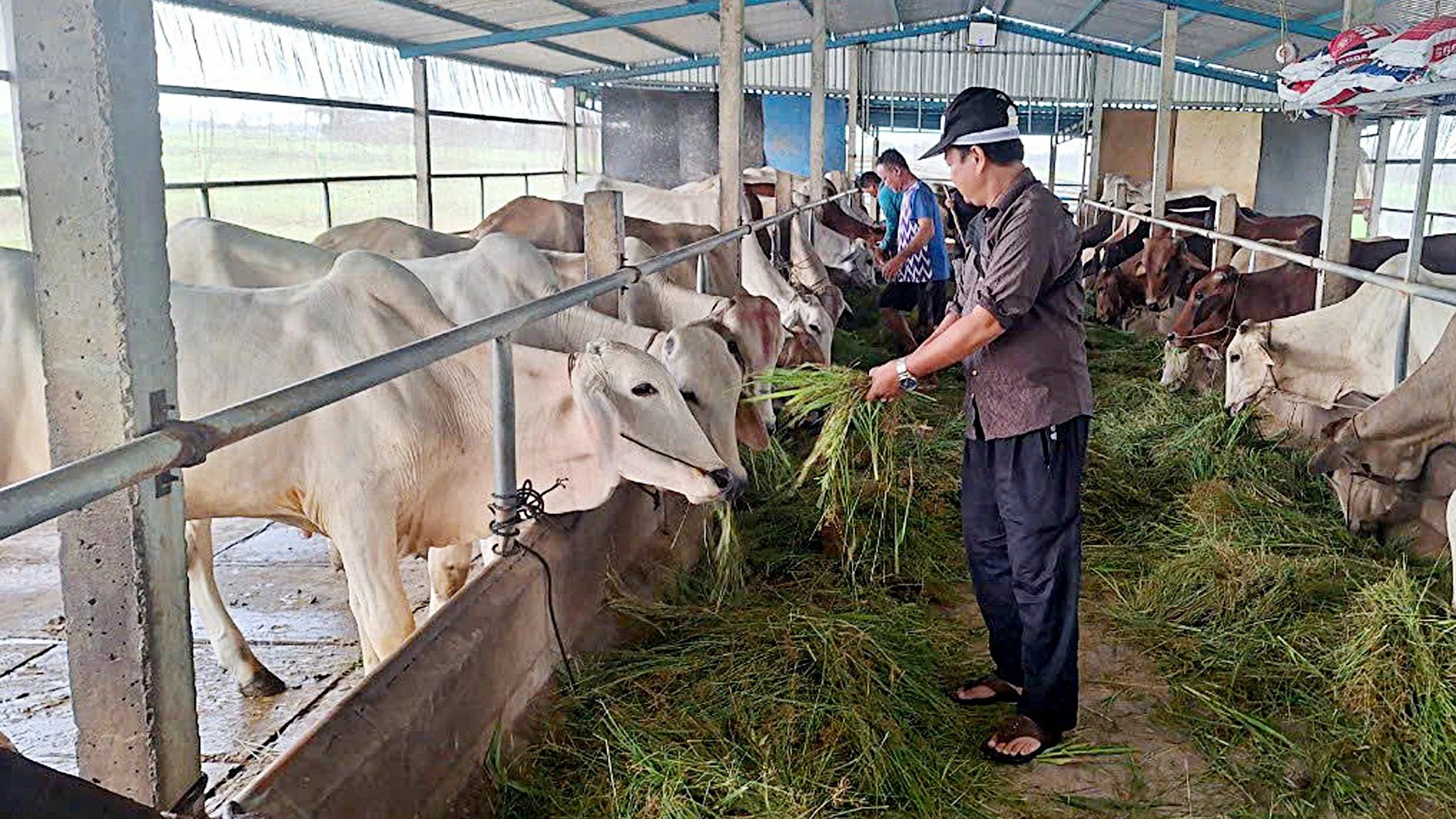
Halal livestock farming model in a Muslim household - Photo: PC
The MENA population is forecast to reach 600 million by 2030, along with the young generation's trend of consuming processed foods and cosmetics, opening up great opportunities for Vietnam to take advantage of its agricultural foundation and export natural products.
Must overcome complex regulations
Resolution No. 57-NQ/TW of the Politburo creates great opportunities for enterprises producing, cultivating, packaging, and transporting Halal products to quickly join the supply chain for the Muslim community worldwide.
Participating in the Halal market in the Middle East requires Vietnam to pay attention to some elements of Religious Law.
First, the religious law, the faith-based rules as interpreted by the Muslim community from the Quran, is called Shariah (or the law of Allah).
However, in case no solution is found in Shariah law, Muslims can use another book, which is Sunnah.
This is the origin of the "gloomy" points according to the regulations of each community, locality within the same church. From there, "mazhab" is created. Because these mazhabs have different interpretations of the verses of the Quran, many countries implement different laws and rules.
For example, it is important that Halal cosmetics are prepared according to Islamic principles and that Halal integrity is maintained throughout the entire supply chain.
Determining whether a product is Halal or not is challenging, as a large number of ingredients can come from animal or plant sources and those that come from animal by-products.
All plant products are Halal, but once they are contaminated with ingredients or processing aids that contain intoxicating or addictive substances, they are declared haram (not allowed).
To take advantage of the opportunity, in terms of legality in trade exchanges with Middle Eastern countries, Vietnam needs to pay attention to more important features: penetrating the Halal market in general with about 2 billion consumers (the Halal market in the Middle East is about 315 million people), need to pay attention to the importance of Islam in trade exchange standards. In particular, the Halal standards of Middle Eastern countries are different from the Halal standards of Malaysia and Indonesia.
Opportunities from blockchain applications
To verify and ensure that they are not contaminated with non-Halal materials or processes, many businesses and inspection organizations have "empowered" blockchain technology (a database system that allows the storage and transmission of blocks of information linked together through encryption).
This technology helps securely store information about the Halal certification process, providing clear and unalterable records, ensuring Halal standards are met at every stage of the supply chain.
If blockchain is applied well, Vietnamese goods can increase consumer confidence in detecting fraud or errors in labeling, identifying Halal products while shopping in foreign markets.
Even though tourists come from countries with different Halal regulations, the host country also has the opportunity to sell products based on transparency about Halal standards.
In 2024, with the "Vietnam - UAE (United Arab Emirates) Comprehensive Economic Partnership Agreement", the UAE will become Vietnam's first comprehensive partner in the Middle East.
Opportunities for agricultural products and processed foods to penetrate deeper into the markets of Middle Eastern and North African countries are opening up.
If we successfully penetrate the Halal market, Vietnam's agricultural exports and key products can increase by 50% or more for many product groups. The capacity of Vietnamese enterprises is such that we have successfully penetrated many demanding markets such as the US, EU, Japan...
If you are really interested and invest in the Halal market, the possibility of double-digit growth in many industries is not too difficult, contributing to the double-digit growth rate in Vietnam in the era of national development.
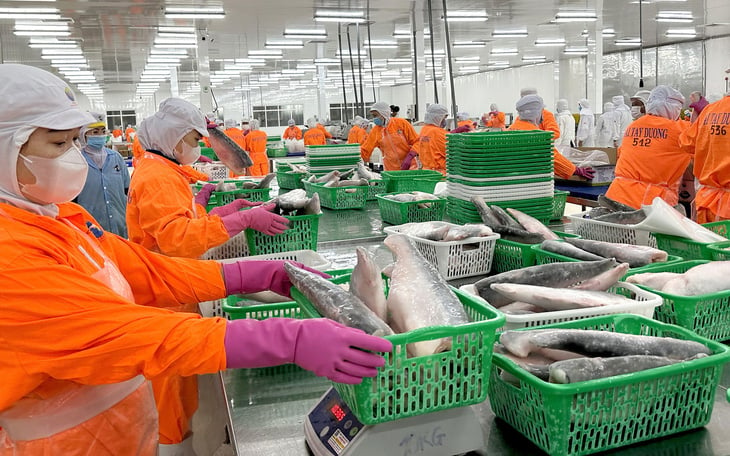 Vietnamese enterprises exploit the Halal market
Vietnamese enterprises exploit the Halal marketSource: https://tuoitre.vn/dung-blockchain-ho-tro-tham-nhap-thi-truong-halal-202502170003033.htm





![[Photo] Hanoi morning of October 1: Prolonged flooding, people wade to work](https://vphoto.vietnam.vn/thumb/1200x675/vietnam/resource/IMAGE/2025/10/1/189be28938e3493fa26b2938efa2059e)










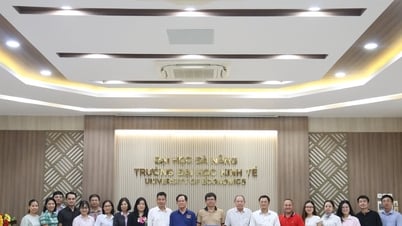




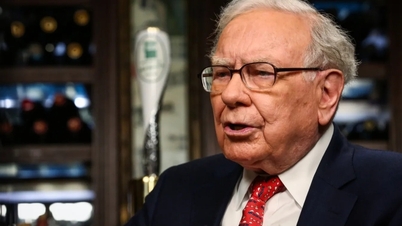

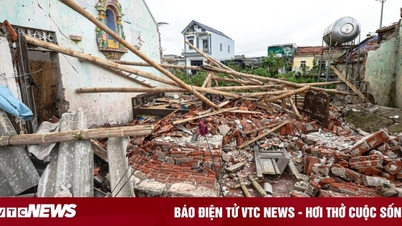

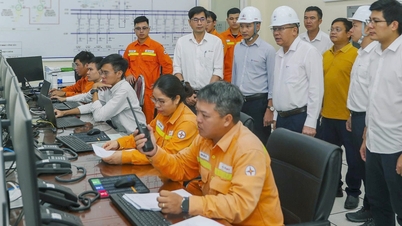





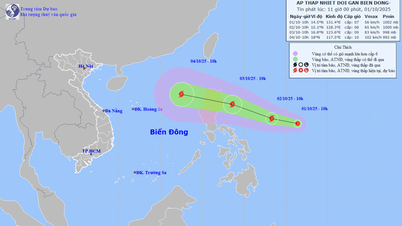





![[Photo] President Luong Cuong receives President of the Cuban National Assembly Esteban Lazo Hernandez](https://vphoto.vietnam.vn/thumb/1200x675/vietnam/resource/IMAGE/2025/9/30/4d38932911c24f6ea1936252bd5427fa)
![[Photo] Panorama of the cable-stayed bridge, the final bottleneck of the Ben Luc-Long Thanh expressway](https://vphoto.vietnam.vn/thumb/1200x675/vietnam/resource/IMAGE/2025/9/30/391fdf21025541d6b2f092e49a17243f)























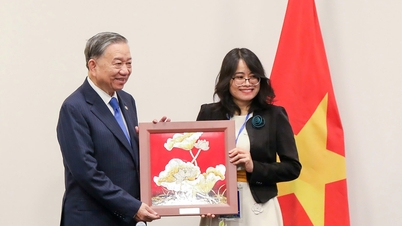
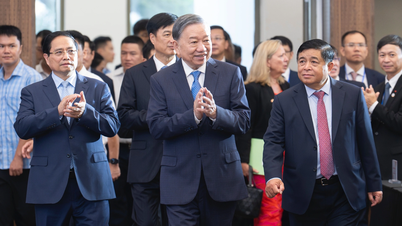








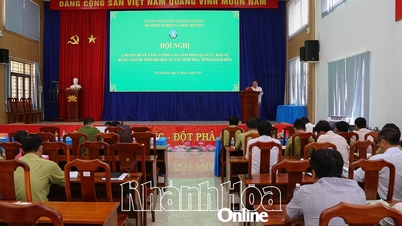

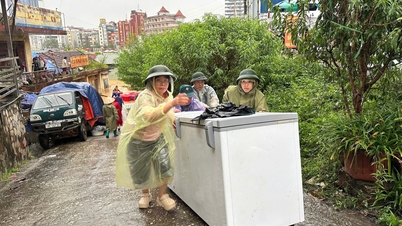

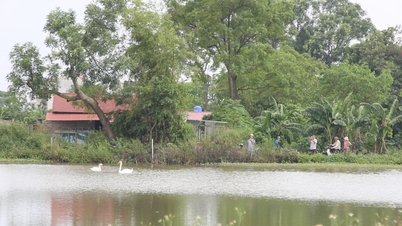



















Comment (0)